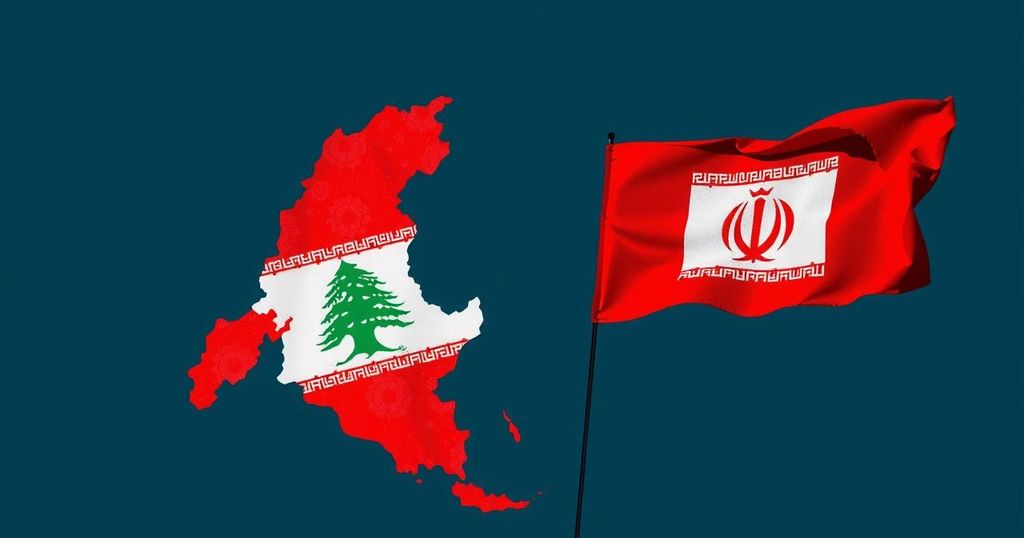Ceasefire Signals Iran’s Declining Influence in Lebanon

The ceasefire between Israel and Hezbollah signals a significant setback for Iran, undermining its influence in the region. With the dismantling of Hezbollah’s military infrastructure by Israeli forces, Iran faces humiliation and increasing domestic pressure. As both Hezbollah and Hamas engage in continued conflict, Iran struggles to maintain its role as a regional power. The evolving situation indicates potential implications for the Iranian regime’s future amidst rising criticism and external challenges.
The recent ceasefire between Israel and Hezbollah in Lebanon has not only alleviated the extensive bloodshed witnessed in recent months but also signifies a substantial setback for Iran, a chief supporter of Hezbollah. Iran has traditionally sought to exert its influence in the region through proxy groups like Hezbollah and Hamas, which have instigated prolonged conflicts. This strategy has proven to be a double-edged sword as Hezbollah’s aggressive military actions—backed by Iranian resources—faced significant retaliation from the Israeli Defense Forces (IDF).
Since the initiation of “Operation Northern Arrows,” Israel has managed to dismantle Hezbollah’s vital infrastructure, resulting in considerable embarrassment for the Iranian regime, which has seen its critical military assets in southern Lebanon effectively neutralized. The loss of senior commanders, including Hassan Nasrallah, coupled with the destruction of artillery sites, underscores Iran’s inability to safeguard its investments in these militant organizations.
Iran’s situation has been further complicated by comparable setbacks in Gaza, where Israel’s operations have obliterated Hamas’s capabilities. Constrained by a crisis of legitimacy at home and increasing public discontent triggered by the poor economic conditions in Iran, the regime seemingly had no viable option but to pursue the ceasefire. Evidence suggests that Iran, rather than Hezbollah, played the leading role in facilitating the diplomatic cessation of hostilities, fearing further deterioration of its regional standing.
In contrast, Hezbollah consistently displayed a willingness to persist in its aggression against Israel, maintaining attacks until the very moments preceding the ceasefire agreement. The group’s ambitions and refusal to honor the cessation of hostilities raise questions regarding the permanence of this truce and any potential for escalation should negotiations break down.
Moreover, as Iran’s influence wanes, the Lebanese government’s reassertion of authority in southern Lebanon—if they opt to deploy their military rather than allowing Iranian-affiliated groups to handle border security—could further isolate Tehran. The repercussions of Iran’s declining power, characterized by increased allegations of betrayal from its allies, portend a precarious future for its regime. Such developments may incite more domestic criticism, particularly as Iranian citizens grow frustrated by governmental priorities favoring regional militancy over national economic recovery.
Finally, the expected transition of power in Washington, likely leading to a more stringent approach towards Iran, enhances the urgency and significance of achieving stability in Lebanon. The ceasefire could potentially signal the beginning of the end for an Iranian regime long plagued by its own contradictions, as internal and external pressures mount.
In the context of escalating tensions in the Middle East, the ceasefire between Israel and Hezbollah marks a critical juncture in the region’s geopolitical dynamics. Iran, serving as the primary patron of Hezbollah and Hamas, has historically wielded its influence through these proxy groups, often at the expense of regional stability. The interaction between Iranian support and the military actions undertaken by Hezbollah has led to prolonged conflicts, raising questions about Tehran’s capacity to maintain its strategic goals amidst increasing military setbacks. As both Hezbollah and Hamas face significant military pressure from Israeli forces, Iran’s regional stature and the potential for political ramifications at home have become increasingly untenable.
The ceasefire in Lebanon represents not only a cessation of hostilities but also an indication of Iran’s diminishing influence in the region. As Israel continues to dismantle the capabilities of its adversaries and the Iranian government’s legitimacy is further besieged by dire internal conditions, the longevity of this ceasefire remains uncertain. Should Hezbollah’s desire to resume attacks conflict with the pressures facing Iran, the dynamics in the Middle East could continue to evolve, potentially heralding significant changes to the geopolitical landscape and the stability of the Iranian regime itself.
Original Source: www.telegraph.co.uk








